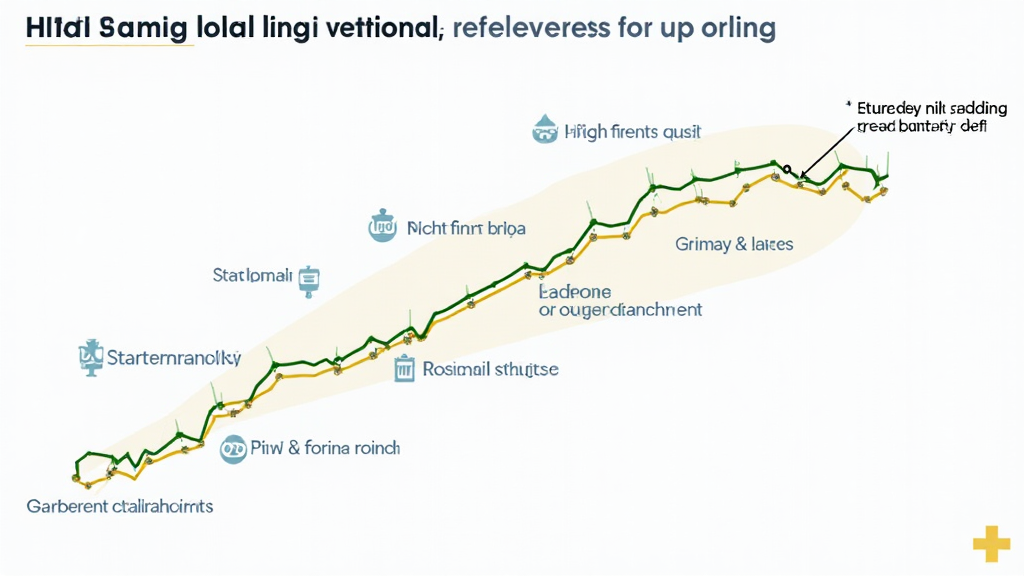Introduction
As the cryptocurrency landscape continues to evolve, many traders are flocking to leverage trading as a means to amplify their profits. However, this comes with inherent risks and responsibilities. With the rise of decentralized finance (DeFi), approximately $4.1 billion was lost to hacks in 2024, highlighting the importance of understanding HIBT Vietnam leverage trading limits and the underlying security measures. In this article, we will explore what leverage trading entails, its benefits, limitations, and how you can navigate the Vietnamese market successfully.
The Basics of Leverage Trading
Leverage trading allows users to borrow funds to increase their trading position beyond their initial investment. This can lead to significant profits; however, it also heightens the risk of substantial losses. For example, a trader using 10x leverage could make ten times their investment profits but could also lose ten times the amount initially invested if the market moves against them.
How Does Leverage Work?
- When you open a leveraged trade, the broker offers you a loan with a margin, which is a percentage of the total investment you need to provide.
- A common standard for leverage in many platforms is 1:20, which means for every $1 of your own, you could control $20.
- However, in Vietnam’s HIBT market, the leverage limits may vary depending on the platform you choose.
Understanding HIBT Vietnam Market Dynamics
The Vietnamese cryptocurrency ecosystem has been experiencing rapid growth, with a reported 65% increase in users in the last year alone. This growth makes it a hotbed for crypto investors seeking leverage trading options. However, with this growth come unique challenges and regulatory landscapes that traders need to be aware of.

Leverage Trading Limits in Vietnam
When trading on platforms such as bobscoinsonline, it is essential to understand the specific leverage limits imposed by the exchange. Depending on your trading strategy and risk tolerance, selecting the right leverage is vital. With the Vietnamese authorities becoming more stringent with regulations, keeping abreast of these limits becomes increasingly important.
Key Considerations for Traders
Trading with leverage in Vietnam requires more than just understanding the mechanics; it necessitates a thorough comprehension of risk management and market conditions.
Risk Management Strategies
- **Use Stop-Loss Orders**: Protect your funds by setting stop-loss orders at reasonable levels to minimize potential losses.
- **Diversification**: Don’t put all your capital in a single trade; spread your investments across different assets.
- **Stay Informed**: Keep up with market trends and regulatory changes that might impact your trading strategy.
The Future of HIBT and Leverage Trading in Vietnam
As Vietnam continues to embrace blockchain technology, the future of leverage trading looks promising but will require traders to adapt to evolving regulations and market dynamics. By 2025, the Vietnamese crypto market is expected to attract even more users, potentially leading to changes in leverage trading limits.
Local Influences on Leverage Trading
The Hanoi and Ho Chi Minh City markets are becoming hot spots for crypto influencers, often leading to spikes in trading volumes. The trends in these local markets can greatly influence the adoption of various trading strategies, including leverage trading.
Conclusion
Understanding HIBT Vietnam leverage trading limits is essential for traders looking to navigate the ever-changing crypto landscape safely. By adopting sound risk management practices, staying informed about local regulations, and taking advantage of available tools, you can help ensure a more secure trading experience. Let’s leverage this growth responsibly!
For further insights into the Vietnamese crypto market, especially regarding trading limits and rules, check out [HIBT](https://hibt.com) for additional information.
Written by John Smith, a blockchain technology consultant with over 10 publications and extensive experience leading noteworthy project audits.


